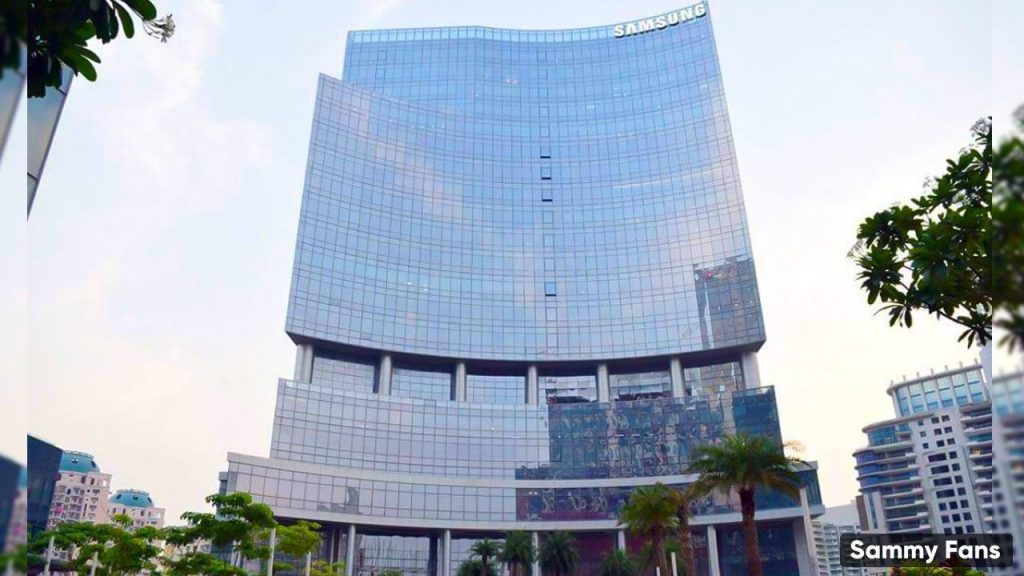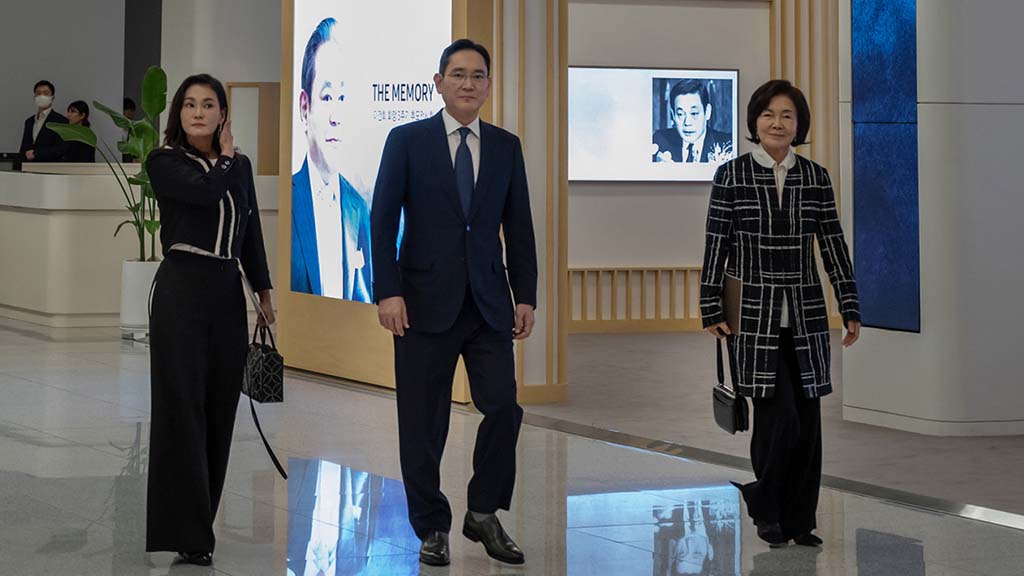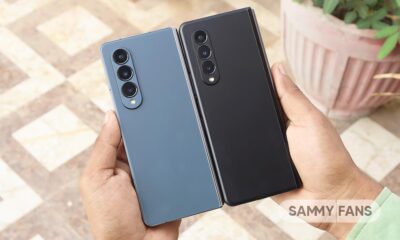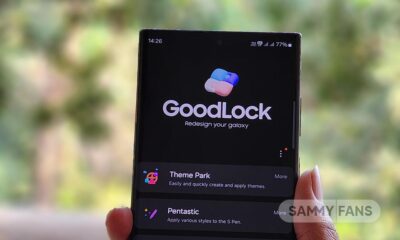
Samsung lost 2% share and continued second in the Indian smartphone market in Q1 2021
Recently, a well-known market research firm – Canalys published a new report, which reveals that the shipments of smartphones grew 11% in the first quarter of this year in India. The researchers pointed out that favorable macroeconomic factors helped phone makers get benefits because of the growing importance of smartphones.
Talking about the top 5 vendors, Xiaomi maintained its top position in the Indian smartphone market with a 28% share and 10.5 million shipments. However, the company offers smartphones with its premium features at affordable pricing, which helps to gain market share.
Amid the Covid-19 pandemic, Samsung managed its second spot by shipping 7.0 million devices. However, the market share decreased by 2% to 19% in the first quarter of this year while it was secured a 21% share in the fourth quarter of 2020.

Aside from this, Chinese brands like vivo and OPPO also remained in their third and fourth place respectively. At the same time, Realme achieved the final prize with 4.3 million shipments in terms of the top 5 Indian smartphone brands. Meanwhile, Canalys analysts believe that the smartphone shipments in India to plunge in Q2 2021 due to the second wave of COVID-19.

Canalys Analyst Sanyam Chaurasia said:
“As the geographical distribution of cases varies widely, a nationwide lockdown seems unlikely. But regional lockdowns could hamper transport of raw materials and devices due to limited inter-state travel. Hence, for smartphone brands and channels, building up optimum inventory could prove to be a hurdle in the second half of the year.”
STAY CONNECTED WITH US:
- Join SammyFans on Telegram
- Like SammyFans.com on Facebook
- Follow SammyFans on Twitter
- Get the latest insights through Google News
- Send us tips at – [email protected]
| Source |
News
Forbes: Samsung’s Jay Y. Lee is the richest Korean in 2024

Samsung’s executive chairman Jay Y. Lee (Lee Jae-yong in Korean) topped the Forbes 2024 Richest Korean list for the first time. On April 17, Forbes revealed that the Samsung boss is the richest in South Korea, with his assets increasing by $3.5 billion, bringing his total net worth to $11.5 billion.
Thanks to a rise in Samsung’s stocks, Samsung’s Lee jumped to the top of the Forbes 2024 Richest Korean list. Notably, the company’s stocks significantly hiked after the revelation that it’s developing high-bandwidth memory chips used in AI computing for NVIDIA.
Forbes 2023 Richest Korean, Kim Byung-ju, slipped to second this year with assets worth $9.7 billion. The third place went to Seo Jung-jin, honorary chairman of Celltrion, with assets of $7.5 billion.
Cho Jung-ho, chairman of Meritz Financial Group, ranked fourth with $6.2 billion, and Chung Mong-koo, honorary chairman of Hyundai Motor Group, was fifth with $4.6 billion.

Stay up-to-date on Samsung Galaxy, One UI & Tech Stuffs by following Sammy Fans on X/Twitter. You can also discover the latest news, polls, reviews, and new features for Samsung & Google Apps, Galaxy Phones, and the One UI/Android operating system.
Do you like this post? Kindly, let us know on X/Twitter: we love hearing your feedback! If you prefer using other social platforms besides X, follow/join us on Google News, Facebook, and Telegram.
News
Samsung builds AI-focussed Advanced Processor Lab in the US
Samsung established an AI chip design-dedicated Advanced Processor Lab in Silicon Valley, US. Formerly known as the Advanced Institute of Technology, Samsung’s SAIT is said to have formed the new Lab to strengthen its AI chip R&D in the US.
BusinessKorea reports that the new Samsung Advanced Processor Lab to focus on developing next-gen AI semiconductor design assets in the US. The assets are said to be focused on the RISC-V area, which serves as a foundational design asset for semiconductor chip design.
Samsung’s initiative with RISC-V is interpreted as a move towards technological independence. Therefore, the company is expanding its R&D organization in Silicon Valley, aiming to enhance design capabilities to disrupt the market currently dominated by NVIDIA.
Amid the booming AI era, the market of advanced semiconductors is also expanding. Samsung has completed the development of its Mach-1 AI semiconductor and supplied prototypes to global firms including Korea’s Naver. The company has also started the development of Mach-2.
Under the CHIPS Act, Samsung received huge subsidies to boost investment in the US. It’s worth noting that the Biden govt awarded a 12% subsidy of Samsung’s total investment, which is significantly higher than Intel and TSMC’s subsidy.
Stay up-to-date on Samsung Galaxy, One UI & Tech Stuffs by following Sammy Fans on X/Twitter. You can also discover the latest news, polls, reviews, and new features for Samsung & Google Apps, Galaxy Phones, and the One UI/Android operating system.
Do you like this post? Kindly, let us know on X/Twitter: we love hearing your feedback! If you prefer using other social platforms besides X, follow/join us on Google News, Facebook, and Telegram.
News
Samsung Galaxy S25’s 3nm Exynos 2500 to beat Snapdragon 8 Gen 4 in power efficiency

Samsung’s first 3nm Exynos 2500 chip could outpace Snapdragon 8 Gen 4 in power efficiency. Both chipsets will power the next-gen Galaxy flagships, scheduled for an early 2025 launch. Recent input suggests that Exynos is returning as a tough rival to Snapdragon.
The Exynos 2500 will be made on Samsung’s 2nd-gen 3nm process technology. The S24’s Exynos 2400 chipset impressed the industry with significant improvements over its predecessor. The company appears to be leveling up the game next year.
Thanks to the cutting-edge process node, Samsung’s next Exynos could finally surpass its Snapdragon counterpart in power efficiency. The company may utilize its advanced FOWLP in the Exynos 2500 to make it run at higher clock speeds at the same power consumption level.
Qualcomm is facing power efficiency concerns with its recent Snapdragon chips. Due to reduced efficiency, phone makers are forced to bring up to 5000mAh battery. Samsung apparently seized this opportunity to bring back its in-house Exynos back to the contest.
Stay up-to-date on Samsung Galaxy, One UI & Tech Stuffs by following Sammy Fans on X/Twitter. You can also discover the latest news, polls, reviews, and new features for Samsung & Google Apps, Galaxy Phones, and the One UI/Android operating system.
Do you like this post? Kindly, let us know on X/Twitter: we love hearing your feedback! If you prefer using other social platforms besides X, follow/join us on Google News, Facebook, and Telegram.










